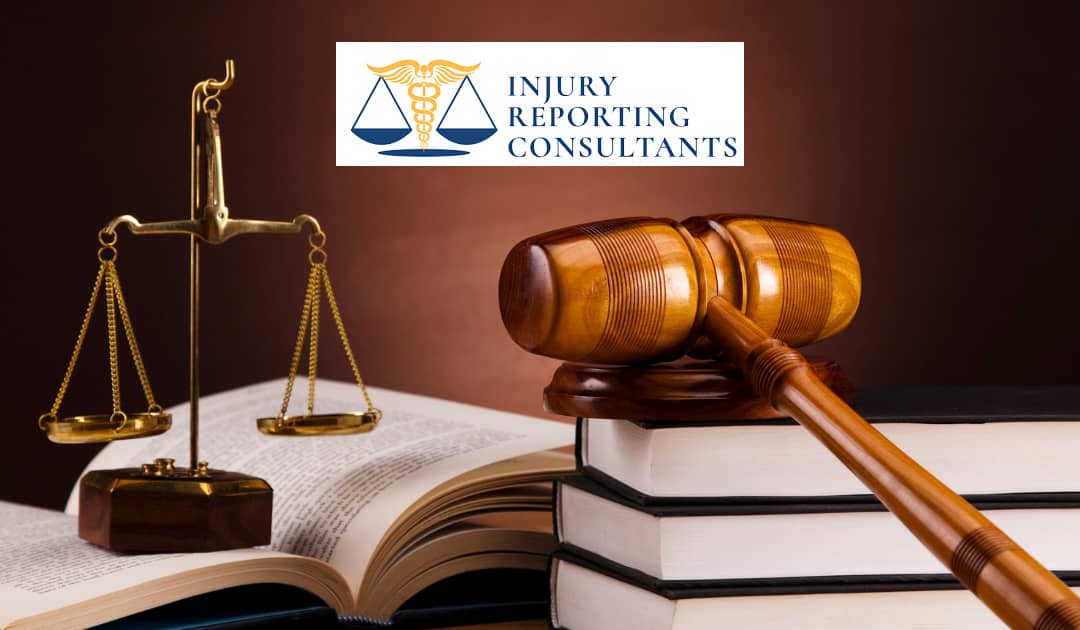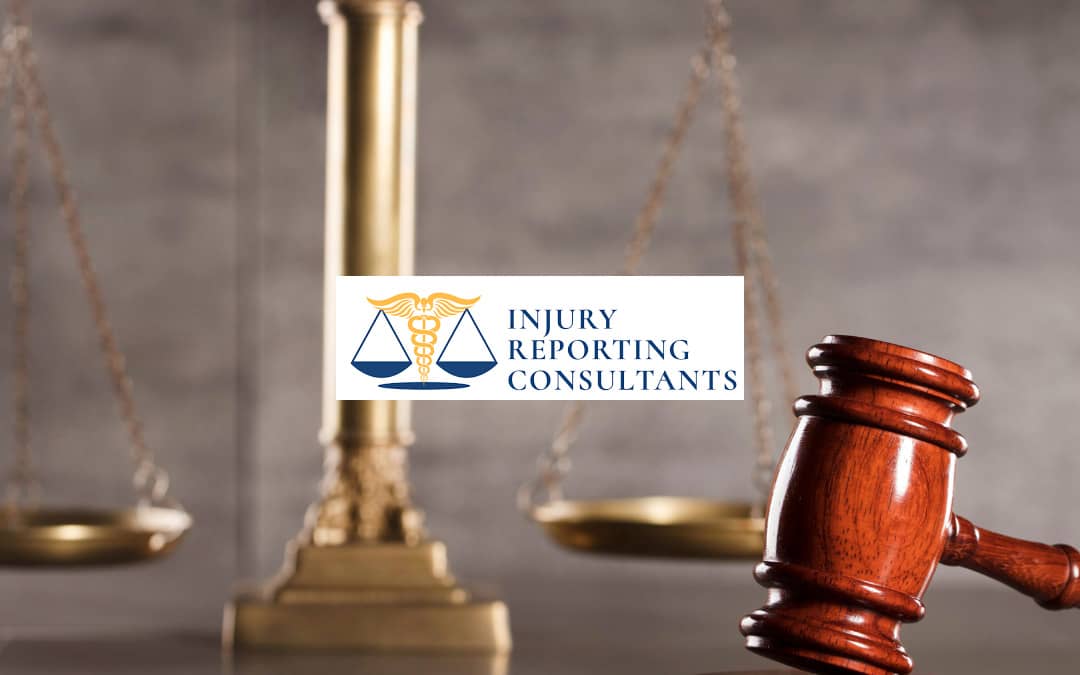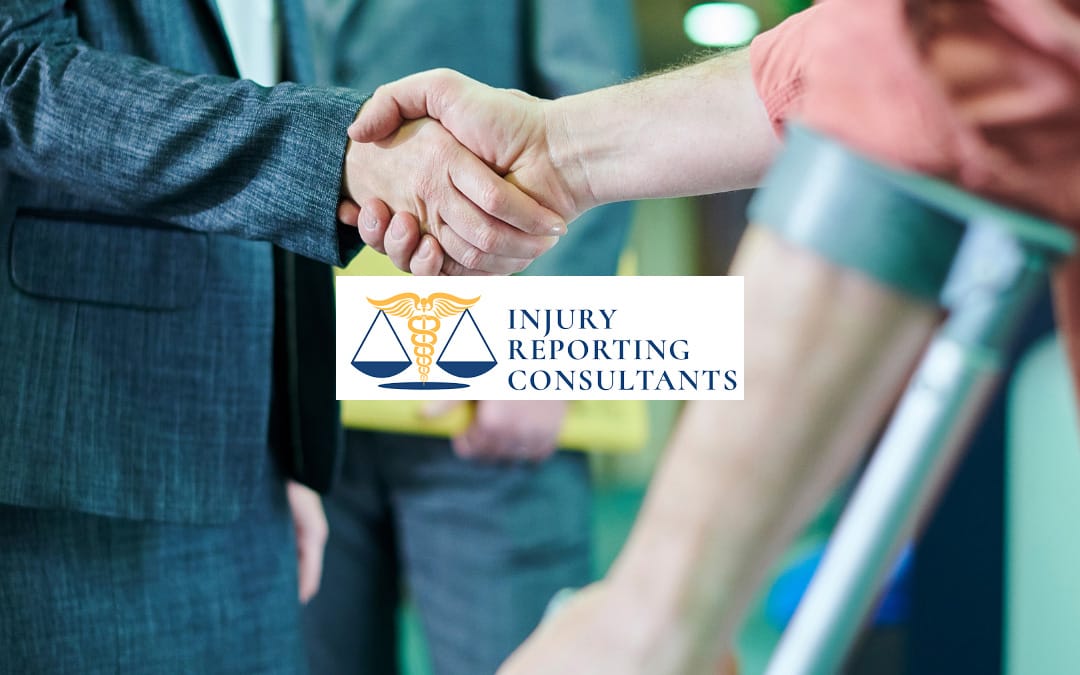
by Shelby C. | Mar 29, 2022 | Expert Reports, IRC Services, Resources for Mediation
As your client progresses through their personal injury case, it’s common for them to experience heightened anxiety, treatment burnout, and mental and physical fatigue.
Personal injury cases can be very complex so keeping your clients’ interest and enthusiasm can be a challenge after months or years of treatment has passed. Many times when we as practitioners make referrals to other specialists, we hear, “why do I have to go to someone else?” or “I just want to be done with all of this.” This is certainly understandable because client treatment often feels more like a marathon than a sprint. Many clients describe this process as being a part time job in excess of their actual full time employment. Running to different appointments is exhausting to say the least.
Just when your client thinks their treatment is finally done, you tell them the daunting words that they do not want to hear. Those words are, “you’re now ready for a Functional Capacity Evaluation.” Before the steam starts coming out of their ears, here are some tips for helping your client understand WHY they need this evaluation.
- Start by educating them on why the test is done. Let them know that even though they went through tons of treatment from different providers, the Functional Capacity Evaluation is the evaluation that ties everything together. This is the industry standard of documenting their impairments and disabilities affect their ability to perform work related tasks, activities of daily living, and leisure activities. The hardest thing to prove to the insurance company is how their injuries affect their lives and this is the evaluation to showcase that.
- Remind them that everything has a purpose. The purpose of their medical, chiropractic and physical therapy treatment is to help them heal, decrease their pain and improve strength/range of motion, but this treatment doesn’t showcase the impact the injury has on the client’s daily life and abilities. That’s where the FCE comes in. The insurance company needs to know how these impairments relate to their life and their ability to perform life’s tasks with real-world functional task simulation and evaluative measures to understand the full impact of your clients’ collision.
- The Functional Capacity Evaluation tees-up the impairment rating given by the physician which plays a significant role in educating the insurance company of their overall damages.
It is also important for the client to understand the intricacies of the evaluation itself. For instance, if the attorney has not educated the client as what to expect the day of the evaluation, the client may be surprised to learn:
- The evaluation takes approximately 4 hours to complete.
- They need to wear comfortable clothing due to the physical functional tasks that are required in the test.
I actually had an attorney refer a client for an FCE years ago and reassured me that they had prepped the client about the test. When the client arrived, they were wearing 4” stiletto heels, a dress, and asked how long the evaluation would take as they had a meeting in 30 minutes. Needless to say, the evaluation had to be rescheduled.
If you’re uncertain about how to adequately prepare your client for the Functional Capacity Evaluation, please don’t hesitate to reach out to the evaluator so they can inform your client as to why the evaluation is being done and what to expect.
If you have a client that you think may need a Functional Capacity Evaluation in order to help educate the insurance company of how their impairments and disabilities affect their life, feel free to reach out to us at Injury Reporting Consultants. We specialize in the preparation and documentation of easy-to-read and understandable reports to help with a swift and fair settlement process.
Dr. Brad Poppie has over 20 years of personal injury experience providing care as a treating doctor, coordinating rehabilitative case management, and expert trial testimony services. If you have a client that you would like to discuss their need for an expert report, please contact me directly at 720-982-2000 or email me at: brad@injuryreportingconsultants.com
Sincerely,
Dr. Brad Poppie, DPT, CLCP, CFCE, CSCS
Doctor of Physical Therapy
Certified Life Care Planner
Medical Cost Projection Specialist
Certified Functional Capacity Evaluator
Certified Strength and Conditioning Specialist
Certified Strength and Conditioning Specialist

by IRC | Jan 27, 2022 | Expert Reports, IRC Services
In today’s ever-evolving personal injury world, insurance companies are also changing the way they relate diagnoses to an injury as well as how they equate those diagnoses to an impairment.
What does this look like? Well, when someone gets injured in a car accident, they typically endure soft tissue injuries such as damage to the muscles, ligaments, and tendons. Many times these types of injuries are not considered serious or life changing and can be a challenge to prove their severity to an insurance company. With soft tissue injuries it can be difficult to verify severity because of the subjective nature of the tissue which can’t be quantified in medical reports. For example, a doctor cannot document that your lower back is 50% more stiff after your car accident because that is purely a subjective complaint from the patient. There is no way to objectively measure or quantify the subjective severity of the increased stiffness.
Patients can also suffer from more severe injuries that cause a higher degree of pain and suffering. These injuries are more catastrophic in nature such as head injuries, broken bones, spinal cord injuries, amputations; etc. These types of injuries are more easily documented and are objectively quantifiable through diagnostic testing measures.
Whether your client has sustained a soft tissue injury or a catastrophic injury, you must always go a step beyond getting the diagnosis to win your case. The problem with solely relying on a diagnosis is that the diagnosis often describes the type of injury sustained but not the full extent of the damage. Without a full understanding of the extent of the injury(ies) how can you prove the impact of the injury and/or what care the client will need long term?
Confidence in the injuries sustained in the client’s accident must come from a correct diagnosis as well as how that diagnosis affects the injureds’ life. The only trial-proven test to confirm the diagnosis and prove the impact is the FUNCTIONAL CAPACITY EVALUATION (FCE). During this 4-hour evaluation, the client’s impairments and disabilities are discovered which confirms not only the diagnosis itself but it also quantifies the severity of the diagnosis.
As a certified functional capacity evaluator, I have encountered numerous cases where a client has come in with a diagnosis and discovered through the FCE that this particular diagnosis has caused numerous other impairments and disabilities that would never have been discovered had the diagnosis been the only form of artillery that the attorney presented to the insurance company in their demand letter.
Arm your case with double barrels ablazing. One barrel is the diagnosis and the other barrel is the functional capacity evaluation. Both fired together produce a tremendous force that launches a substantial impact.
Want to learn more about IRC and the services we provide? Visit our channel, Personal Injury Today for informative videos, or visit our website to set up a free case consultation.

by IRC | Nov 23, 2021 | Expert Reports, IRC Services
When someone sustains an injury from a car accident and is seeking an attorney for representation, they will typically go through some degree of a screening process to determine what law firm or attorney is right for them and their case.
This process may include asking friends or family for a referral or by googling or calling around to various firms in their area to determine the right one for the job. The injured person may even choose based on whoever’s advertisements have imprinted the most on their brain.
The same screening process should hold true for attorneys looking to hire an expert witness to help support their case. Let’s say an attorney is looking to hire a life care planner to determine the future medical / rehabilitative care and associated costs for their clients’ case.
The attorney may call colleagues to ask who they use or may just go online and do a search. They may even hire the company who puts up the most advertising dollars to make an impact and determine that they are the best.
I’ve been a personal injury doctor for over 20 years and have heard from both clients and attorneys the horror stories, headaches, mishaps, and nightmares these individuals have experienced from hiring expert witnesses that were unqualified, insufficient or unprofessional.
From an attorney / expert relationship point of view, the most common complaint I have heard is, “the experts they hire don’t perform well on the stand”…and as we know, an expert’s report is only as good as their ability to defend it to the opposing counsel and win the hearts of the jury.
The Frye Test and Daubert Decision, Rule 702, and Rule 26 are the defining standards for admissible scientific evidence in trial from an expert’s testimony and their reports. If the criteria and rules of evidence set forth by these rulings are not met, the court may not allow acceptance of your expert to testify on behalf of your client. Make sure you choose your experts wisely to avoid this issue at trial.
I think a more common issue, however, is if the expert is unable to fully educate the jury on the methodology behind their report, the conclusions that they came to, and how those conclusions affect the livelihood of the client. If this happens, the jury will often discredit the expert and disregard their report or their testimony which could prove to be catastrophic to your case.
Over the last two decades, I have testified for numerous cases both as a treating doctor and an expert. Understanding what evidence is admissible in trial and how to portray that evidence to the jury is imperative, and has become a personal commitment to deliver highly qualified and understandable reports to help effectively educate the jury.

by IRC | Aug 3, 2021 | Expert Reports, IRC Services
If you’re in the personal injury law world, you’re probably well aware of the many complexities a personal injury case can present. When preparing these cases for an insurance company to evaluate, it’s common to be thrown a curveball or two along the way. I often hear from a lot of attorneys spending late nights trying to work through these difficulties and navigate the intricacies of their cases. Here are a few common potential case killers.
- Pre-existing conditions: When clients have pre-existing condition(s), you can generally expect that they’ll have an impact on how an insurance company views the case. Insurance companies will want to analyze whether the client’s current state, impairments, and disabilities are in fact caused by the collision versus something that happened in the past.
- Gaps in treatment: It’s very common for clients to stray from a treating practitioner’s treatment plan, recommended frequency or treatment duration. This could be the result of one of life’s many complexities, but the insurance company views this as evidence that the client is not hurt due to their lack of compliance.
- Prior felonies / incarceration: From time to time this sensitive topic arises within a handful of cases. Many times, embarrassed clients leave past legal disputes out of an attorney’s initial intake form. When this happens, it can be surprising to the plaintiff attorney when opposing counsel brings this to their attention late in the litigation process.
These are only a few of many challenges that can complicate a personal injury case.
I’ve often been asked to produce an expert report and have discovered these issues as well as many others including poor documentation, inadequate communication, case management issues; etc.
When things go awry during the discovery process, the question for an attorney becomes, “What tools do I have accessible to help navigate these roadblocks?” The answer is consulting with the experts to help you along the way.
IRC is here to help you fully understand your case and put your mind at ease knowing that your damages reports are valid and objectively reliable in order to help settle your case in a timely manner.
As a treating doctor specializing in personal injury for over 20 years, I understand the pain-points your case can face and am here to help take the burden off of your shoulders, build out your damages reports and help you fully understand the complexities of your case.
As injury experts, you can trust us to take the wheel and help make your next personal injury case a smooth one.
At Injury Reporting Consultants, we specialize in providing expert reports such as functional capacity evaluations, vocational and earning capacity evaluations, medical cost projections, and life care plans that will support your legal documents in order to help obtain a swift and fair settlement.
Dr. Brad Poppie has over 20 years of personal injury experience not only as a treating doctor but as an expert witness in trial. If you have a client that you would like to discuss their need for an expert report, please contact me directly at 720-982-2000 or email me at: brad@injuryreportingconsultants.com
Sincerely,
Dr. Brad Poppie, DPT, CLCP, CFCE, CSCS
Doctor of Physical Therapy
Certified Life Care Planner
Medical Cost Projection Specialist
Certified Functional Capacity Evaluator
Certified Strength and Conditioning Specialist

by IRC | Jun 3, 2021 | IRC Services
I’m sure every attorney reading this has experienced a tough case. Perhaps one that has gone sideways, had poor medical management, questionable liability, or was a confusing poly-trauma case that was difficult to understand.
No personal injury case, client, impairment, or disability is alike. Many times when a client has multiple musculoskeletal and cognitive deficits, it can be hard to know what issue(s) to prioritize and how to determine a causal relationship between the injury and the impairment or disability.
Without a solid understanding of the causation, impairments, disabilities, and the associated damages related to them, it can be difficult to properly build effective demand and damages reports. Insurance companies are well-practiced at spotting inadequacies and loopholes in ill-prepared reports which can make getting the case settled in mediation impossible.
As an attorney fighting for your client, you need the tools to prove your client’s case. We provide you with these tools by helping you understand the true nature of the case, identify your client’s true impairments and disabilities, clarify your client’s current and future medical and rehabilitative care and even break down the costs associated with their care and condition.
Let us help you improve your case outcomes with our expert medical and rehabilitative legal analyses that ensure your case has well documented medical evidence prepared and delivered in clear and concise reports.
At Injury Reporting Consultants, we specialize in providing expert reports such as functional capacity evaluations, vocational and earning capacity evaluations, medical cost projections, and life care plans that will support your legal documents and help you obtain a swift and fair settlement.
Dr. Brad Poppie has over 20 years of personal injury experience not only as a treating doctor but as an expert witness in trial. If you have a client that you would like to discuss their need for an expert report, please contact me directly at 720-982-2000 or email me at: brad@injuryreportingconsultants.com
Sincerely,
Dr. Brad Poppie, DPT, CLCP, CFCE, CSCS
Doctor of Physical Therapy
Certified Life Care Planner
Medical Cost Projection Specialist
Certified Functional Capacity Evaluator
Certified Strength and Conditioning Specialist

by IRC | Jan 13, 2021 | Expert Reports, IRC Services
I often have attorneys call and ask, “How do we help the jury fully understand the extent of our client’s injuries and how their impairments affect their life?” My answer is always the same, “They won’t understand until there is a doctor on the stand that can translate medical terminology into layman’s terms, and how those terms have actually disabled their life.”
The complex linguistic nature of medical jargon has always been the “Achilles’ heel” of an injury case. When insurance companies and juries don’t understand the client’s medical records or the extent of an injury there can be a huge delta between the perception of the injury and how the injury has actually affected the client’s livelihood. Without a complete, understandable explanation of how the client’s impairments and disabilities affect their ability to perform vocational tasks, activities of daily living, and leisure activities, a case can easily become deadlocked. If this happens, any unnecessary stalls cause the client to suffer.
Our job at Injury Reporting Consultants is to provide understandable expert reports and to help educate attorneys, both plaintiff and defense, to understand medical jargon and break it down into simple terms that insurance adjusters and a jury can easily understand.
I, Dr. Brad Poppie, have 20 years of personal injury experience not only as a treating doctor but as an expert witness in trial. If you have a client that may be a candidate for IRC services, please contact me directly at 720-982-2000 or email me at: brad@injuryreportingconsultants.com






